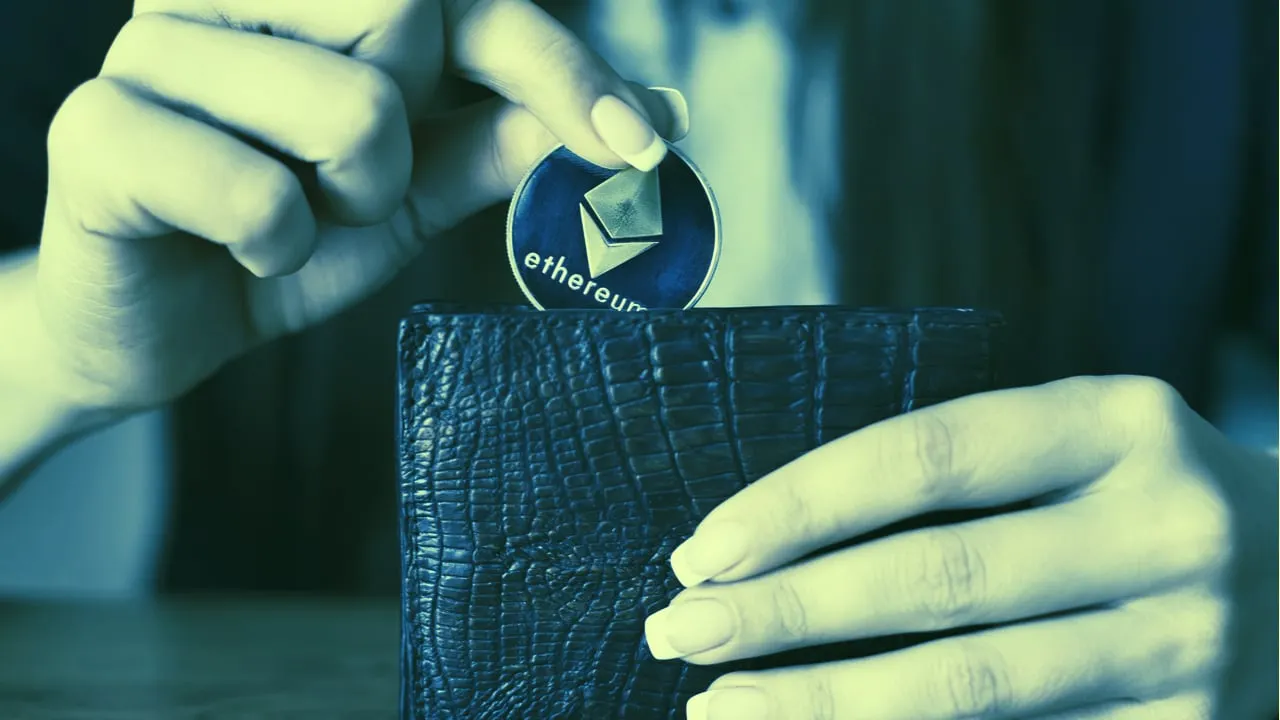In brief
- MetaMask has introduced MetaMask Swaps for Firefox users.
- MetaMask users can swap tokens within their wallet.
- Because MetaMask compares prices from multiple DEX and DEX aggregators, it says it’s able to always find the best price and most gas-efficient route.
MetaMask is getting into the token swaps game. And it’s promising that users will “always get the best prices across DeFi.”
Today, the Ethereum wallet and browser extension is launching MetaMask Swaps, a new feature for Firefox users (with Chrome to follow) that allows them to trade the digital assets they hold for just about any token on a decentralized exchange, all while staying within the MetaMask wallet.
(Disclosure: MetaMask is funded by ConsenSys, which also funds an editorially independent Decrypt.)
MetaMask, which just hit one million monthly active users, has long provided a gateway to the Ethereum blockchain and its associated decentralized applications. Its wallet function lets users make transactions on those dapps and buy Ethereum-based tokens at decentralized exchanges. Now, it’s using the various connections to do more of the heavy lifting for users.
“We get the best prices because we simultaneously aggregate the most liquidity sources (DEXs) and many different methods for splitting the order across the DEXes (aggregators),” Jacob Cantele, Head of Product at MetaMask, told Decrypt.
The end result isn’t just a better price, according to MetaMask, but “a better network for all—one with fewer fees and reduced network congestion.”
Some context helps to explain how MetaMask Swaps work.
Suppose you have a bunch of Augur tokens, but you want some OmiseGo. You try a centralized exchange, but it doesn’t have that pair—you’d have to first trade Augur for Ether or a stablecoin and then trade that for OMG, getting hit with fees and, potentially, price slippage twice.
A decentralized exchange such as Uniswap (check out our explainer) eliminates the onerous onboarding process and some of the fees, but it’s hard to know whether you’re getting the best price. So you head to a decentralized exchange aggregator, which can show you Uniswap’s price and other DEX prices, kind of how Kayak shows flight prices.
According to Cantele, though, those DEX aggregators don’t always give the best price. “When we started building this functionality, we planned to bring a single DEX aggregator to MetaMask. We tested every DEX aggregator available, and found that results varied wildly based on the token and size of the swap the user was making.”
Totle CEO David Bleznak explained to Decrypt one of the ways this might happen: “Best quoted price is not the same as best settled price and anyone can quote any price on a UI. Deviating from a quoted price on settlement or having many failed transactions is also a negative experience for users.”
MetaMask believes it’s solved for this. Unsatisfied with sending users to decentralized exchanges or aggregators, the team behind the tool essentially built their own. Working with ConsenSys Codefi, it created a system that aggregates the aggregators and the DEXes themselves. So it keeps users inside its own UI while sending business to DeFi protocols like Totle.
What’s that look like for a MetaMask user? Now, if you want OmiseGo, MetaMask gets a quote from every DEX and aggregator in its system and users should get the best one. The list includes not just Totle and Uniswap, but also Airswap (the ConsenSys DEX that worked with MetaMask on the project), 0x API, 1inch.exchange, dex.ag, Kyber, Paraswap, Totle, and private market makers.
According to Cantele, MetaMask also helps lower gas fees. Typically, traders have to pay gas fees for swaps on each individual exchange they use for swapping. “By aggregating all available aggregators and DEX,” Cantele said, “we're able to reduce the number of token approvals which reduces the amount of gas paid by the user.”
Cantele and the team believe the new feature can help reduce the pressure DeFi usage places on the Ethereum blockchain: “A simple, streamlined experience reduces friction for new token users, bringing more people into DeFi. It enables more trades, faster, by providing an optimized path for fees. And, crucially, bringing greater transparency and efficiency to decentralized finance on Ethereum.”
Still, the proof is in the pudding. Said Bleznak when asked to explain Totle’s claim that its aggregator offers the best price possible on the market: “All aggregators will claim to get THE best price, but the reality is (assuming everyone is searching the same liquidity) there are tradeoffs in any approach.”
But, said Bleznak, “At the end of the day, the competition ultimately benefits the end-user.”

